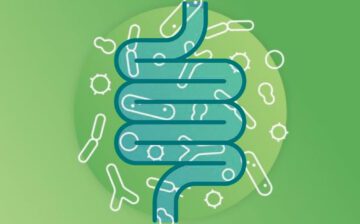
What is the Microbiome?
Our body is inhabited by trillions of bacteria, fungi, and viruses which collectively live on and in our body as a community known as microbiota. Their genome is the microbiome.

Skeletal muscle is well known as the organ of locomotion, but it also plays an essential role in a number of physical and metabolic functions. As we age, muscle quality and quantity typically decline. Therefore, strategies to increase, regain or maintain muscle mass are important in the maintenance of general health.
Resistance exercise and sufficient protein intake are known to act synergistically to promote skeletal muscle mass. As a result, many athletes and recreational exercisers believe that combining resistance exercise training (RET) with dietary protein supplementation will enhance their muscle mass gain and strength. But does protein supplementation have an impact on RET-induced change in skeletal muscle?
Morton and colleagues have recently conducted a systematic review, meta-analysis and meta-regression to address this question. The review, published in the British Journal of Sports Medicine, looked at data from 49 randomized controlled trials, including 1863 participants from 17 countries. Participants were supplemented with a variety of protein sources, including whey, casein, soy, pea, milk or milk protein, whole food or a blend of multiple protein sources, and received between 4 g to 106 g of protein a day. Dietary protein supplementation was shown to significantly (p<0.05) increase changes in one-repetition-maximum strength (2.49 kg [0.64, 4.33]), fat-free mass (0.30 kg [0.09, 0.52] as well as muscle fibre cross-sectional area (310 μm2 [51, 570]) and mid-femur cross-sectional area (7.2 mm2 [0.20, 14.30]) during prolonged RET.
The effect of protein supplementation on gains in fat-free mass was more pronounced in resistance-trained individuals but appeared to diminish with age. Morton et al pointed out that the daily protein supplementation given to older participants was relatively low (20 ± 18 g/day) and stipulated that elderly individuals may need higher protein intakes to respond optimally to the sensitizing effect that exercise has on muscle and ultimately see gains in fat-free mass.
A plateau in RET-induced gains was found with a total protein intake of ~ 1.6 g/kg/day, suggesting that this amount might be sufficient in healthy adults during RET. The authors concluded by acknowledging that while protein supplementation does augment RET-induced changes in muscle strength and mass, RET itself contributes the most to the observed changes in skeletal muscle.
Reference: Morton RW, Murphy KT, McKellar SR, Schoenfeld BJ, Henselmans M, Helms E, Aragon AA, Devries MC, Banfield L, Krieger JW, Phillips SM. A systematic review, meta-analysis and meta-regression of the effect of protein supplementation on resistance training-induced gains in muscle mass and strength in healthy adults. Br J Sports Med 2018; 52: 376-384.
Want to learn more about our high protein ingredients? Click here.
Do you have questions or comments? We want to hear from you! Connect with us
Disclaimer: Information discussed in this blog is based on the above-mentioned published research article and represents the thoughts, views and opinions of the authors of the article.